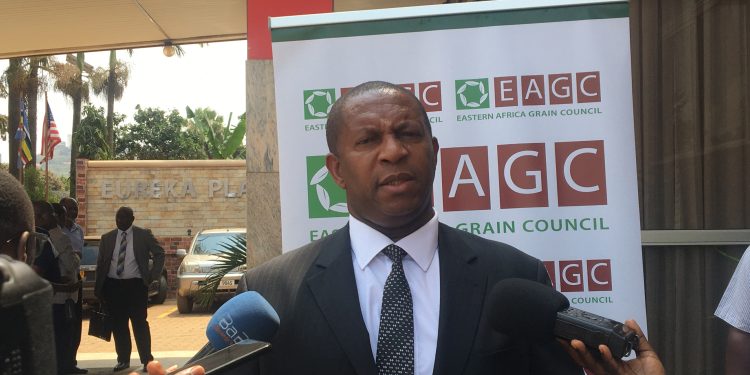Government working with the East African Grain Council (EAGC), has embarked on sensitization and training of cooperatives, agricultural extension and warehouse workers in Uganda engaged in grain handling on safe post-harvest handling of grain.
This follows, constraints of Ugandan grain to penetrate markets beyond the region due to poor quality grain coupled with issues of aflatoxins among others.
Speaking at the end of a three day training, Paul Acuna the Team Leader at East African Grain Council (EAGC), said they embarked on a campaign to find solutions to majority of grain producers’ challenges ranging from difficulty to meet sanitary and phytosanitary standards required to export goods beyond the region including Europe and the United States.
He noted that they decided to work on capacity building in the value chain for the market and food safety standards through providing the much sought-after Post-Harvest Management training sessions.
“Last year the Kenyan government had banned importation of maize from Uganda and also from Tanzania because they were contaminated with aflatoxins. So we are trying to impart this knowledge so that the smallholder farmers and the cooperatives whom they work with, can can be able to improve on post harvest management, improve on warehouse under storage practices, and also improve on the transportation of this grain. And we’re very hopeful that with other partners coming on board from the private sector and efforts from the government, we should be able to get grain that is acceptable for international trade and also grain that is fit for human consumption,” Ocuna said.
For the past two days, Ugandan National Bureau of Standards (UNBS) and Makerere University delivered training sessions for the targeted beneficiaries —developing their skills to train trainers and warehouse managers in the effective harvesting and handling of grains including the drying, grading and treatment of grains and testing aflatoxin levels using scientific techniques.
Warehouses play a vital role in ensuring that increases in production actually reach the market, allowing farmers to be financially rewarded for their hard work and boosting food security for those who rely on their produce.
Closing the training, Stanley Ahimbisibwe, the Assistant commissioner Quality Assurance and Standardization in the Ministry of Trade Industry and Cooperatives said government working with development partners is taking deliberate measures address grain quality challenges.
“We are looking at how grain millers can penetrate both local and international markets by ensuring that the products are of good quality,” he said.
He said government wants sure that both the country and the region are food secure and the masses are healthy.
Dr John Jagwe, the country manager Alliance of a Green Revolution in Africa (Agra), said they want to raise awareness to those dealing in grain on dangers of grain and poor standards
He said there’s need to sensitize all value chain actors including the regulators, about the dangers and doing the right thing, like drying the maize thoroughly and after harvest operation among others.









